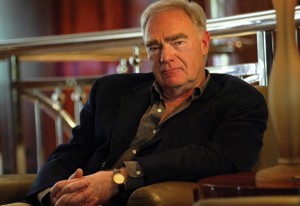The McKee to Success
 Every year, thousands of writers around the world pay hundreds of dollars to attend this man’s seminar. Miguel Gonzalez spoke with the one and only Robert McKee about how he’s planning to educate Australian writers.
Every year, thousands of writers around the world pay hundreds of dollars to attend this man’s seminar. Miguel Gonzalez spoke with the one and only Robert McKee about how he’s planning to educate Australian writers.
His official website (mckeestory.com) boasts the names of hundreds of former students turned celebrities with a combined 35 Academy Awards (and 160+ nominations) and billions of dollars earned at the worldwide box office.
He’s been famously celebrated and satirised in Spike Jonze’s 2002 film Adaptation (where he was played by his friend, actor Brian Cox). He claims there are no money-making formulas or rigid rules, but forms and principles of story structure and design. He is Robert McKee, and in a world where content is king, he is the Emperor.
This is the Encore interview with McKee, prior to his Australian tour later this month.

